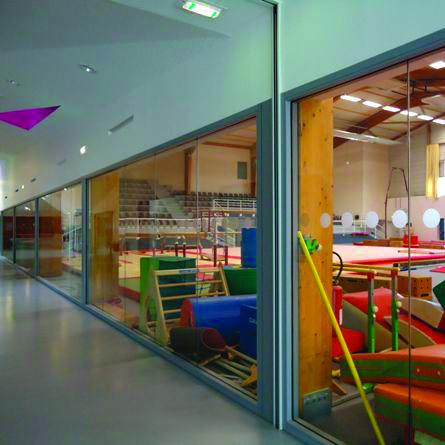Heat-resistant glass is a remarkable material that has revolutionized various industries, from home cookware to industrial applications. However, it is not exempt from myths and misconceptions. In this blog, we will debunk some of the common misunderstandings surrounding heat-resistant glass, ensuring you have accurate information about its properties, uses, and limitations.
Myth: All glass is heat-resistant
Glass is a versatile material, but not all types of glass are heat-resistant. Ordinary glass, such as window glass or drinking glasses, can shatter or crack at high temperatures. Heat-resistant glass, on the other hand, is specially designed to withstand extreme heat without breaking or losing its structural integrity.
Myth: Heat-resistant glass is unbreakable
While heat-resistant glass is highly durable and resistant to thermal shock, it is not indestructible. Exposing it to sudden and drastic temperature changes can cause stress fractures or breakage. It is essential to handle heat-resistant glass with care and avoid subjecting it to rapid temperature variations.
Myth: Heat-resistant glass is immune to thermal expansion
Heat-resistant glass is indeed more resistant to thermal expansion than ordinary glass. It can withstand higher temperatures without expanding or contracting as much. However, it still expands to some extent when exposed to heat. For this reason, it is crucial to follow proper installation guidelines and allow for appropriate expansion gaps to avoid any potential damage.
Myth: Heat-resistant glass is only suitable for stovetop cookware
While heat-resistant glass is commonly used in cookware, such as baking dishes and saucepans, its applications extend far beyond the stovetop. Heat-resistant glass is also used in laboratory equipment, fireplace doors, oven windows, kilns, and even high-temperature industrial processes. Its ability to withstand intense heat makes it a versatile material for numerous applications.
Myth: Heat-resistant glass is completely resistant to thermal shock
While heat-resistant glass can withstand high temperatures, it is not entirely immune to thermal shock. Rapid changes in temperature, such as placing a hot glass in cold water or exposing it to an open flame, can still cause it to crack or break. To prevent thermal shock, it is important to handle heat-resistant glass with caution and avoid subjecting it to sudden temperature variations.
Myth: Heat-resistant glass is expensive and inaccessible
Heat-resistant glass is available at a wide range of price points, depending on the specific type and application. While some high-end heat-resistant glass products can be costly, more affordable options are also available. Additionally, the widespread use of heat-resistant glass has made it easily accessible through various retailers and online platforms.
Myth: Any glass can be made heat-resistant through DIY methods
Attempting to make ordinary glass heat-resistant through DIY methods is dangerous and not recommended. Heat-resistant glass undergoes a specific manufacturing process that involves adding special materials, such as borosilicate or tempered glass, to enhance its thermal properties. DIY methods, such as applying coatings or treating glass at home, cannot replicate professionally manufactured heat-resistant glass’s structural integrity and properties. Always purchase heat-resistant glass from reputable sources.
Conclusion
Heat-resistant glass is a valuable material with exceptional properties, but it is essential to dispel the myths and misconceptions surrounding it. Understanding its limitations and proper usage guidelines will help you make informed decisions when selecting and handling heat-resistant glass. Remember, if you are unsure about a particular application or installation process, it is always advisable to seek professional assistance to ensure your safety and the longevity of the glass.
Having accurate knowledge about heat-resistant glass allows you to confidently explore its potential in various industries and enjoy its benefits in your daily life.
For additional details about heat-resistant glass, get in touch with AIS Glass without delay!

